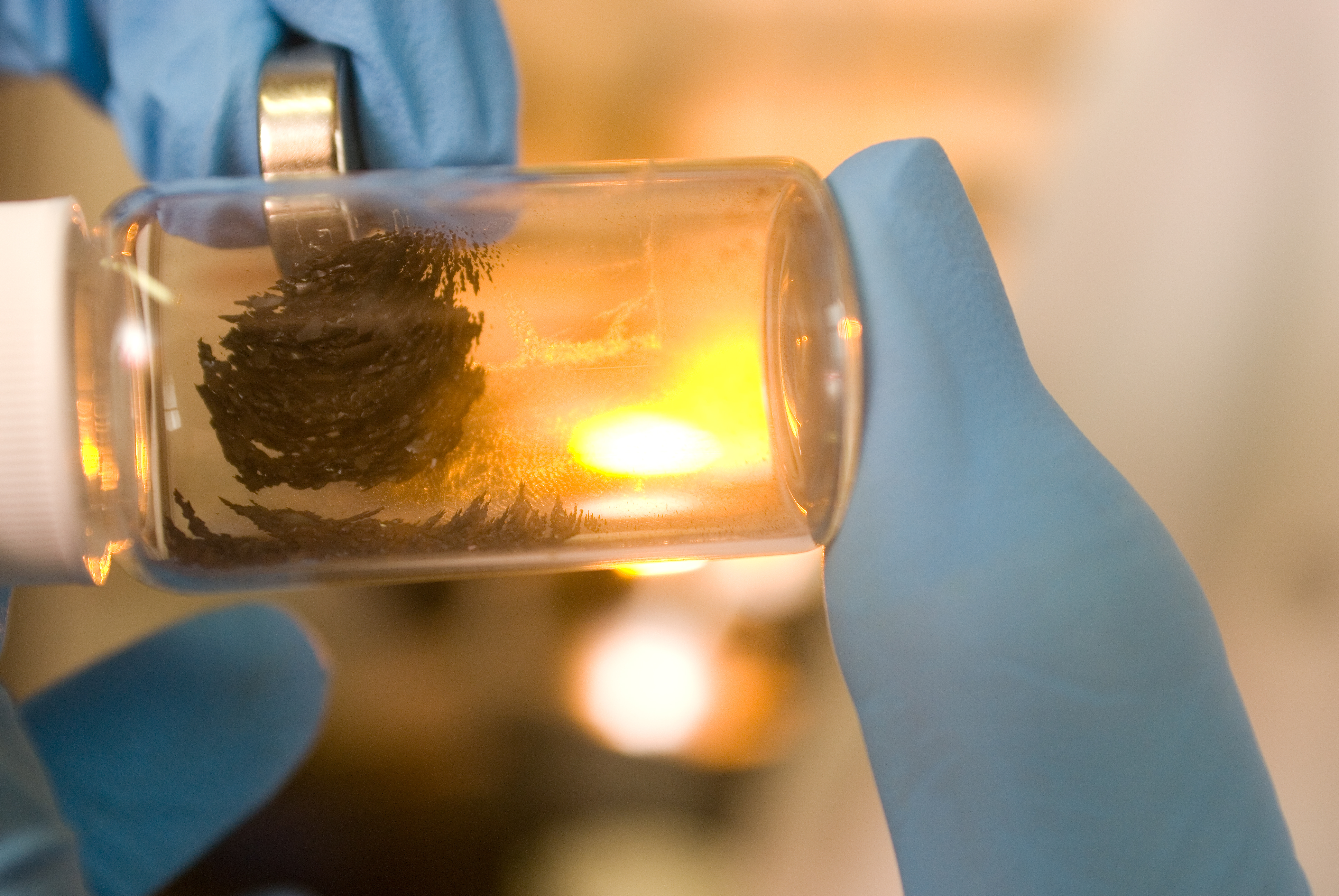Three new baccalaureate degree programs to further define undergraduate science education

The Virginia Tech Board of Visitors approved three new interdisciplinary STEM-H bachelor's degree programs on Monday, underscoring the university's commitment to lead the way and prepare students for careers in critical 21st century fields of study and industry.
The three new degree programs — the Bachelor of Science Degree in Computational Modeling and Data Analytics, the Bachelor of Science Degree in Microbiology, and the Bachelor of Science Degree in Nanoscience — will all be administered in the College of Science.
Pending approval from the State Council of Higher Education for Virginia, students will begin to enroll in these programs during the next academic year.
Bachelor of Science Degree in Computational Modeling and Data Analytics
The computational modeling and data analytics program will involve primarily statistics, mathematics, and computer science.
It will help students meet industry and government needs by preparing students with the requisite computational skills needed to work with vast data sets and to develop code for specialized applications. It will also provide the mathematical skills needed to develop the intricate models describing such data, including such areas as data assessment and predictive modeling.
In addition, the program will build expert knowledge on a richly developed computational core to produce Virginia Tech’s most highly skilled, integrated practitioners of quantitative science.
Virginia Tech is among the nation’s leading universities when it comes to the number of jobs projected to be created in the next four years to include engineers, computing experts, doctors, and other professions that comprise the STEM-H (science, technology, engineering, mathematics, and health) fields.
Emphasis in computational modeling and data analytics program will be given to develop core competencies in computational thinking, information literacy, and analytical methods.
Bachelor of Science Degree in Microbiology
The microbiology program, which falls under biological sciences in the College of Science, will prepare graduates for interdisciplinary research and education, for employment in the private sector, state and federal government agencies, and for post-baccalaureate training.
The new undergraduate degree is unique in Virginia and establishes Virginia Tech and the state as leaders in education in a field that affects all areas of human endeavor as microbes play key roles in both deterioration and maintenance of human and animal health, in the preservation and degradation of food, in the generation of biofuels, and in maintenance of the earth’s environment and climate.
As the need for qualified microbiologists continues to grow, the field of microbiology has virtually unlimited potential. Microbiologists are needed across many industries, including in academic, technology, industrial and environmental organizations.
The U.S. Bureau of Labor Statistics expects a 13 percent increase in the number of jobs for microbiologists and a 14 percent increase in the number of jobs for biological technicians between 2010 and 2020.
Bachelor of Science Degree in Nanoscience
With the approval of this degree program, Virginia Tech will become only the second university in the nation, along with the State University of New York at Albany, to offer a bachelor’s degree in nanoscience and only the fifth nano-related undergraduate degree in the nation.
The degree solidifies Virginia Tech’s place as a leader in research and education in one of the most critical technologies of the future. The National Science Foundation estimates a market of $3 trillion by 2020 for nanotechnology products with a U.S. workforce of 2 million.
The nanoscience program will include physics, geosciences, chemistry, and biology. It is an integral part of the discovery, development, and delivery of new pharmaceutical compounds; is foundational to the discovery and the development of nanomaterials; is a key area in the discovery and development of new devices for the production, storage and delivery of energy; and plays a foundational role in modern information and communication technology.
Students will take part in interdisciplinary research and education in a field recognized by both public and private partners as critical to the future.
In 2000, the President Bill Clinton launched the National Nanotechnology Initiative, which prioritizes and coordinates the nanoscience and nanotechnology research and development efforts of 25 federal agencies. The cumulative investment in this initiative now stands at $18 billion.
In response, several universities started graduate programs in nanoscience and technology. However, undergraduate degree programs in this field are still very rare.
With a strong base of senior faculty who are actively engaged in research at the nanoscale, the College of Science has hired 15 faculty members in the nanoscience cluster area since 2004, with strengths in novel nanomaterials and devices, nanomedicine, and environmental nanoscience.
Advances in nanoscience and nanotechnology will lead to dramatic changes in the ways that materials, devices, and systems are understood and created. Among the expected breakthroughs are orders-of-magnitude increases in computer efficiency, human organ restoration using engineered tissue, “designer” materials created from directed assembly of atoms and molecules, and the emergence of entirely new phenomena in chemistry and physics.




